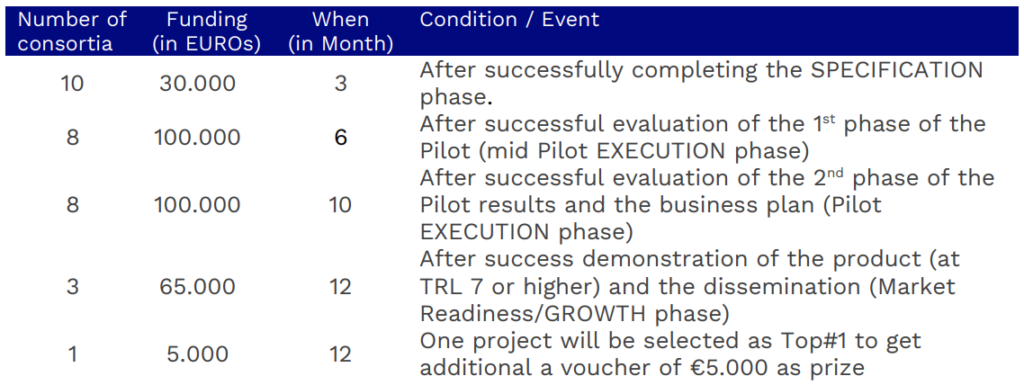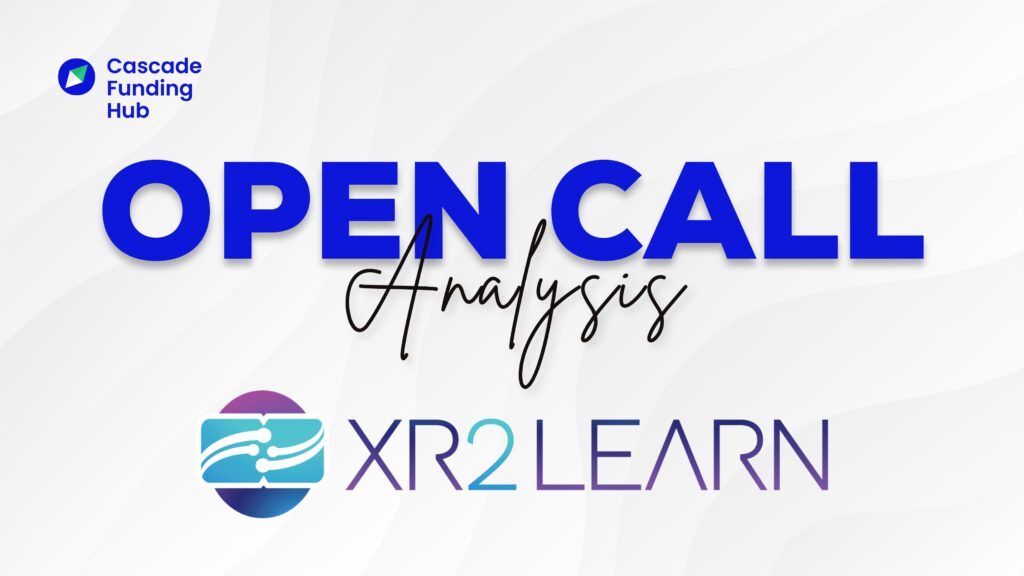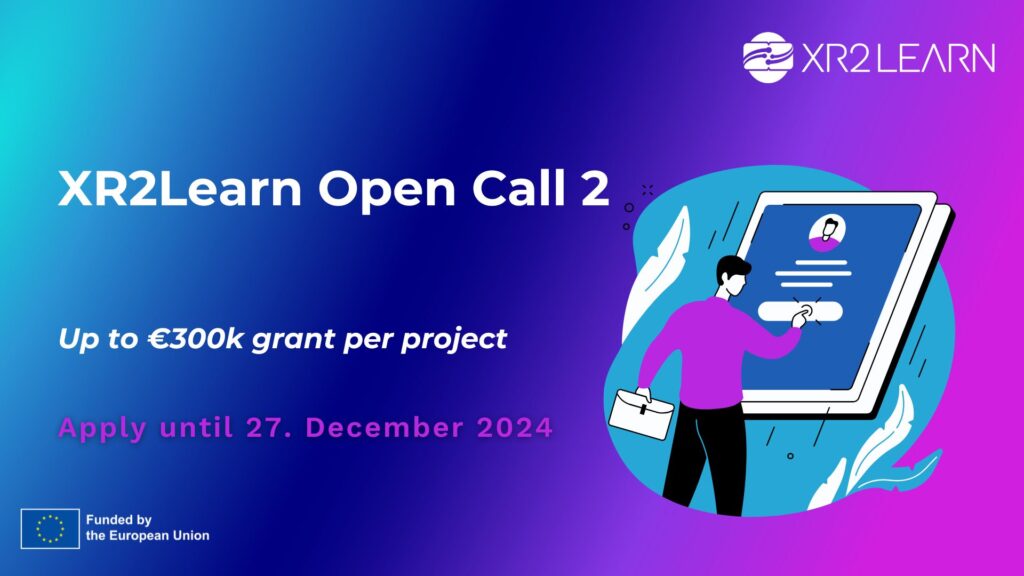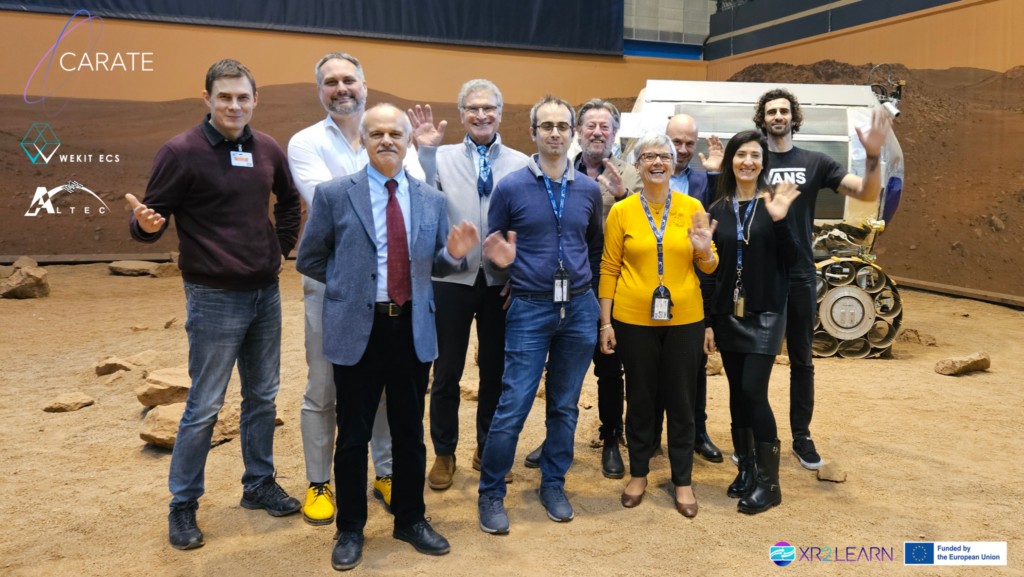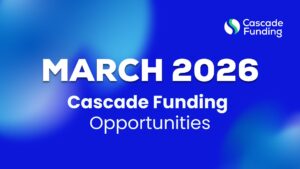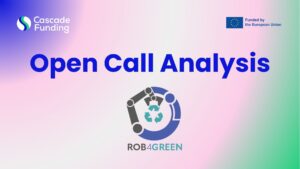2nd Open Call of the XR2Learn Programme closes on December 27th. This 12-month initiative empowers real-world testing and validation for XR innovations in education, offering up to €300,000 for projects advancing immersive learning technologies.
About XR2Learn
Education is changing rapidly, and XR2Learn is here to take it to the next level. Funded by the European Commission’s Horizon Europe Programme, XR2Learn is creating a unique space where cutting-edge extended reality (XR) technology meets innovative educational applications. The project is coordinated by CNIT and involves 9 additional partners from across Europe.
For this Open Call #2, the goal is to take XR-based projects to the next level by testing, piloting, and validating their effectiveness and user acceptance in authentic environments. This call is a unique opportunity for XR innovators to showcase the impact of their applications within the dynamic XR2Learn ecosystem, which is focused on enhancing training and educational experiences.
Out of the total budget for the call (€2,100,000), 70% will support XR applications relevant to Industry 5.0, to push the boundaries of what’s possible in areas like smart manufacturing, robotics, and human-machine collaboration. In addition, the remaining 30% will target other essential sectors (i.e., healthcare, medical training, construction, and engineering) where immersive XR applications can drive transformative learning and training.
Why Apply to XR2LEARN Open Call 2?
XR2LEARN Open Call #2 offers a gateway to real-world validation within an ecosystem designed for collaborative growth. Accepted projects will benefit from testing in diverse scenarios, gaining insights into user acceptance and functionality in genuine educational contexts. The programme and funding have been divided into 3 phases (Specification, Execution and Growth) with a duration of up to 12 months.
Selected sub-projects will enter a programme following a funnel approach, where more funding is distributed to the top projects throughout the programme.
Successful projects throughout the way will be able to deliver an MVP with a TRL7, while an MRL 4 or higher is targeted. More information regarding the different stages of the programme can be found in the guide for applicants.
Success Stories from XR2LEARN Open Call 1
- PROXIMA (BSD design): Proximity Machinery through Distributed Augmented Reality HMI Layers for Empowering Industrial operators in Low Resources Scenarios
- EVR-OSH-5 (Zengo.eu): VR-based Education of Occupational Safety and Health for the era of Industry 5
- CARATE (WEKIT ECS): Collaborative Augmented Reality Astronaut Training Experience.
- XR4HRC (Lider Teknoloji Geliştirme): Excellence in Extended Reality for Human-Robot Collaboration
- PaperXR (NEXUSIT LTD) PAper Printing workEr tRaining using eXtended Reality
- XR2IND (INNOV-ACTS LIMITED) XR technologies to empower immersive industrial 5.0 training
- X-Alfy (Venaka Treleaf) eXtended reality for Awareness and Learning in Forestry 5.0
Who Can Apply?
- Consortium Composition:
- Small consortia of up to 3 partners focused on developing innovative XR applications in the educational domain.
- The consortium leader must be an SME
- A training provider (public or private) must be included, and having an early adopter or user organisation is a plus but not required
- SME Eligibility:
- Must comply with the European Commission’s SME criteria:
-
- Independent, not owned by another enterprise.
- Less than 250 employees.
- Annual turnover of up to €50 million or annual balance sheet of up to €43 million.
- Must be established and based in one of the EU Member States or a Horizon Associated country.
- Must be an IT technology provider (e.g., in XR tools, applications, or services).
- Must prove financial stability as required by the European Commission.
- Should not have any history of financial misconduct or be under liquidation.
- Proposal-specific requirements:
- Proposals should involve piloting XR applications aimed at educational scenarios, with a clear European scope that aligns with EU digitalisation goals
- Requested funding per proposal must be between €30,000 and €300,000, with each participant eligible for between €60,000 and €200,000. Industrial partners must receive at least 60% of the funding per phase, and up to 40% can go to academic or research organisations.
- Each entity can participate in only one proposal per open call. Duplicate applications by the same entity or individual involvement in multiple proposals will lead to disqualification.
- Entities funded in Open Call #1 are not eligible for Open Call #2.
How to Apply?
Applications must be submitted before the deadline in the F6S platform. The submission package includes the following documents:
- Annex 3 Proposal Template : Online application form
- Annex 3.1 Proposal Supplement (max. 9 pages): Word document to be completed and submitted together with the proposal.
- Annex 4 Consortium Declaration: Document declaring that all consortium members commit to the proposal submission, the consortium coordinator and the funding distribution.
- Annex 5 Declaration of Honour: Document declaring that all conditions of the Open Call are accepted by all legal representatives.
- Annex 6 SME Financial Stability: Document aiming to evaluate the status of the coordinating SME and any other SMEs in the consortium and their financial stability.
- Annex 7 Coordinator Bank Account Form: Collects information on the consortium coordinator bank account where the XR2Learn payments will be sent.
All documents can be found at the following link: https://xr2learn.eu/open-call-2/
Important Dates
- Application Submission Deadline: 27th of December at 17:00 CET
- Evaluation and Selection: 1st January -28th February 2025
- Sub-project validation & Contract: 1st-31st March 2025
- Project Implementation: 1st April-31st March 2026
Evaluation and Selection Process
All proposals submitted to XR2LEARN – Open Call #2 will be assessed through a rigorous evaluation process including three key stages:
- Eligibility Check: Each proposal will first undergo an eligibility review to confirm that all necessary documentation is complete and that candidates meet the participation criteria.
- External Expert Evaluation: Eligible proposals will be evaluated by two external experts, each with specialised knowledge in XR technologies, education, and business development. Proposals will be scored across four criteria, with each criterion rated on a scale from 1 to 10. A minimum score of 26 within the 4 criteria is required to proceed to the next stage.
- Ranking and Selection: Following evaluation, proposals will be ranked based on their alignment with the call’s objectives. In line with funding priorities, 70% of the budget will be allocated to projects relevant to Industry 5.0. After ranking, the top 10 proposals will be selected for funding, with an additional 4 proposals placed on a reserve list.
Payment and Funding
- Successful projects may receive between €30,000 and €300,000 in funding.
- Each participating organisation can access between €60,000 and €200,000.
- To maximise real-world impact, 60% of the funds are designated for industrial partners, with up to 40% available for academic and research institutions.
- All partners are funded at 100%, through lump sum.
